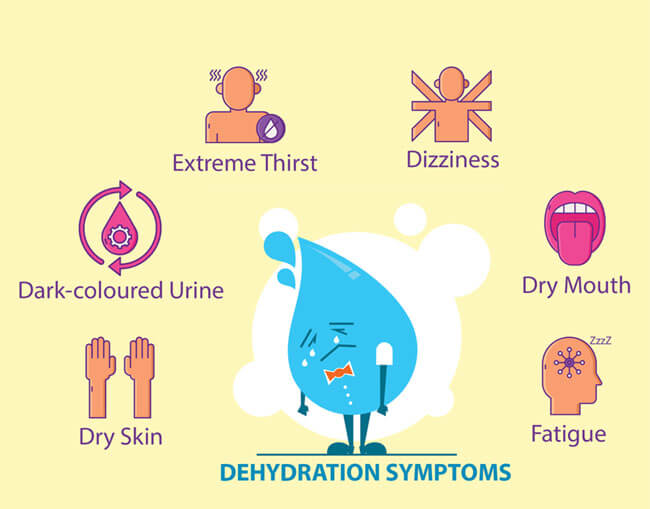Water is an essential element that contributes to various bodily functions, and its significance is amplified for people living with diabetes. Proper hydration is vital to managing blood sugar levels effectively and promoting optimal health in people with diabetes.
In this article, we will delve into the importance of drinking enough water and diabetes, discuss the recommended daily water intake, and examine the impact of dehydration on blood sugar levels. Additionally, we will address common questions surrounding this topic and provide insights into when it is necessary to seek medical advice.
Why is Hydration Important for Diabetics?
Staying adequately hydrated is crucial for everyone, but it holds particular significance for individuals with diabetes. Research has shown that proper hydration can positively influence various aspects related to diabetes management. [1]
Because the body of a diabetes patient does not produce or use insulin properly, cells can not absorb sugar from the bloodstream and use it for energy. Sugar accumulates in the blood, causing the kidneys to work harder to filter and remove the excess glucose. This process occurs through urine production, leading to increased fluid loss and dehydration. Thirst and dry mouth, common signs of mild dehydration, are often the first indicators of diabetes. [2]
Staying well-hydrated is an effective tool in managing fluctuating blood sugar levels and preventing damage to the kidneys, nerves, and cardiovascular system. Even mild dehydration can cause significant increases in blood sugar levels, potentially damaging the body over time. When the body loses water, the circulating blood glucose becomes more concentrated, resulting in a spike in blood sugar.
The kidneys compensate by producing more urine to filter the blood, further exacerbating fluid losses and dehydration. Maintaining optimal fluid balance by offsetting dehydration risk factors, such as hot weather, humidity, exercise, diarrhoea, vomiting, and excessive urination (as seen in diabetes insipidus), can improve overall health and help keep blood sugars in check. Hydration is an essential aspect of diabetes management to stabilise blood sugars and avoid or delay complications. [3]
Symptoms of Dehydration
Symptoms of dehydration include increased thirst, dry mouth, fatigue, dizziness, dark-coloured urine, and dry skin. Recognising these signs is crucial for timely intervention and prevention of further complications.

How Much Does Dehydration Affect Blood Sugar?
Dehydration can significantly impact blood sugar levels in individuals with diabetes. When the body lacks proper hydration, blood sugar levels can become more challenging to control. Studies have shown that dehydration can lead to higher blood glucose concentrations, increasing the risk of hyperglycemia. [1] Therefore, adequate hydration stabilises blood sugar levels and prevents diabetes-related complications.
How Much Water Should a Diabetic Drink Daily?
Water is the principal component of the human body, comprising approximately 50% to 70% of body weight. [4] Adequate hydration is crucial for various bodily functions, such as regulating body temperature, lubricating joints, protecting organs and tissues, and eliminating waste products. [4][5]
There is no one-size-fits-all recommendation for daily water intake; several factors influence individual needs, including health, activity level, and climate. [4][6] However, a general guideline for a healthy individual is consuming approximately four to six cups of plain water daily. [6]
While the general water intake guidelines apply to diabetics, there are additional considerations to keep in mind. People with diabetes should strive to drink water consistently throughout the day, even if they don’t feel thirsty, as the thirst response may be unreliable. Women with diabetes are recommended to consume approximately 1.6 litres of water daily, while men should aim for around 2 litres. [7]
Maintaining adequate hydration becomes even more crucial during summer due to increased temperatures and sweating. Engaging in outdoor activities can further contribute to fluid loss. To stay hydrated during summer, increasing water intake based on activity level, climate, and individual needs is recommended. In addition to water, incorporating hydrating foods such as fruits and vegetables into the diet can help replenish electrolytes and maintain hydration levels. [8][9]
Calories in Water
One advantage of water is that it contains zero calories, making it an excellent choice for individuals with diabetes who want to manage their weight. [10] Unlike sugary beverages, water does not contribute to weight gain or negatively affect blood sugar levels. By opting for water over calorie-rich drinks, individuals can maintain a healthy weight and better control their diabetes.
Frequently Asked Questions
Can a Diabetic Drink Diet Coke?
While diet sodas like Diet Coke are sugar-free and have zero or low calories, they contain artificial sweeteners that may impact blood sugar levels. The American Diabetes Association suggests moderation when consuming diet sodas, as some studies have shown a potential link between artificial sweeteners and weight gain. [11]
Does Drinking Tea or Squash Count as Drinking Water?
Tea and squash can contribute to overall hydration but may contain additional ingredients like sugar or caffeine that can affect blood sugar levels. Unsweetened tea and sugar-free squash are essential to minimise the impact on blood sugar levels. However, it’s still recommended to consume plain water as the primary source of hydration.
Beverages to Avoid with Diabetes:
Certain beverages should be avoided or consumed in moderation by individuals with diabetes due to their potential impact on blood sugar levels. These include sugary drinks such as regular soda, fruit juices, sweetened tea or coffee, and energy drinks. These beverages can cause sharp spikes in blood sugar levels and contribute to weight gain.
When to Contact My Doctor
It’s essential to monitor your hydration status and blood sugar levels regularly. If you experience persistent symptoms of dehydration, such as excessive thirst, frequent urination, or unexplained weight loss, it’s advisable to consult your healthcare provider. They can evaluate your condition, provide personalised advice, and address any concerns related to your diabetes management.
Final Thoughts
Proper hydration is crucial for individuals with diabetes to maintain optimal health and effectively manage their condition. By drinking adequate water daily and making healthy beverage choices, individuals can support their overall well-being, stabilise blood sugar levels, and reduce the risk of complications. Remember to consult your healthcare provider for personalised advice tailored to your needs.
References
- Janbozorgi N, Allipour R, Djafarian K, Shab-Bidar S, Badeli M, Safabakhsh M. Water intake and risk of type 2 diabetes: A systematic review and meta-analysis of observational studies. Diabetes Metab Syndr. 2021;15(4):102156. doi:10.1016/j.dsx.2021.05.029
- Diabetes and Dehydration: Symptoms and Causes. Healthline. Published March 19, 2021. Accessed July 17, 2023. https://www.healthline.com/health/diabetes/diabetes-and-dehydration
- web. Staying Hydrated When You Have Diabetes. UMMS Health. Published February 15, 2023. Accessed July 17, 2023. https://health.umms.org/2023/02/15/staying-hydrated-when-you-have-diabetes/
- Water: How much should you drink every day? – Mayo Clinic. Accessed July 17, 2023. https://www.mayoclinic.org/healthy-lifestyle/nutrition-and-healthy-eating/in-depth/water/art-20044256
- Water and Healthier Drinks. Centers for Disease Control and Prevention. Published June 6, 2022. Accessed July 17, 2023. https://www.cdc.gov/healthyweight/healthy_eating/water-and-healthier-drinks.html
- How much water should I drink a day? – Harvard Health. Accessed July 17, 2023. https://www.health.harvard.edu/staying-healthy/how-much-water-should-you-drink
- How Much Water Should A Diabetic Drink Daily? – Diabetic & Me. Accessed July 17, 2023. https://diabeticme.org/learning-center/diet-guides/how-much-water-should-a-diabetic-drink-daily/
- Diabetes diet: Create your healthy-eating plan – Mayo Clinic. Accessed July 17, 2023. https://www.mayoclinic.org/diseases-conditions/diabetes/in-depth/diabetes-diet/art-20044295
- Water | Ready.gov. Accessed July 17, 2023. https://www.ready.gov/water
- https://www.facebook.com/verywell. Water Nutrition Facts and Health Benefits. Verywell Fit. Accessed July 17, 2023. https://www.verywellfit.com/water-nutrition-facts-calories-and-health-benefits-4102563
- Diabetes in the UK: 2019 – PubMed. Accessed July 17, 2023. https://pubmed.ncbi.nlm.nih.gov/31901175/


